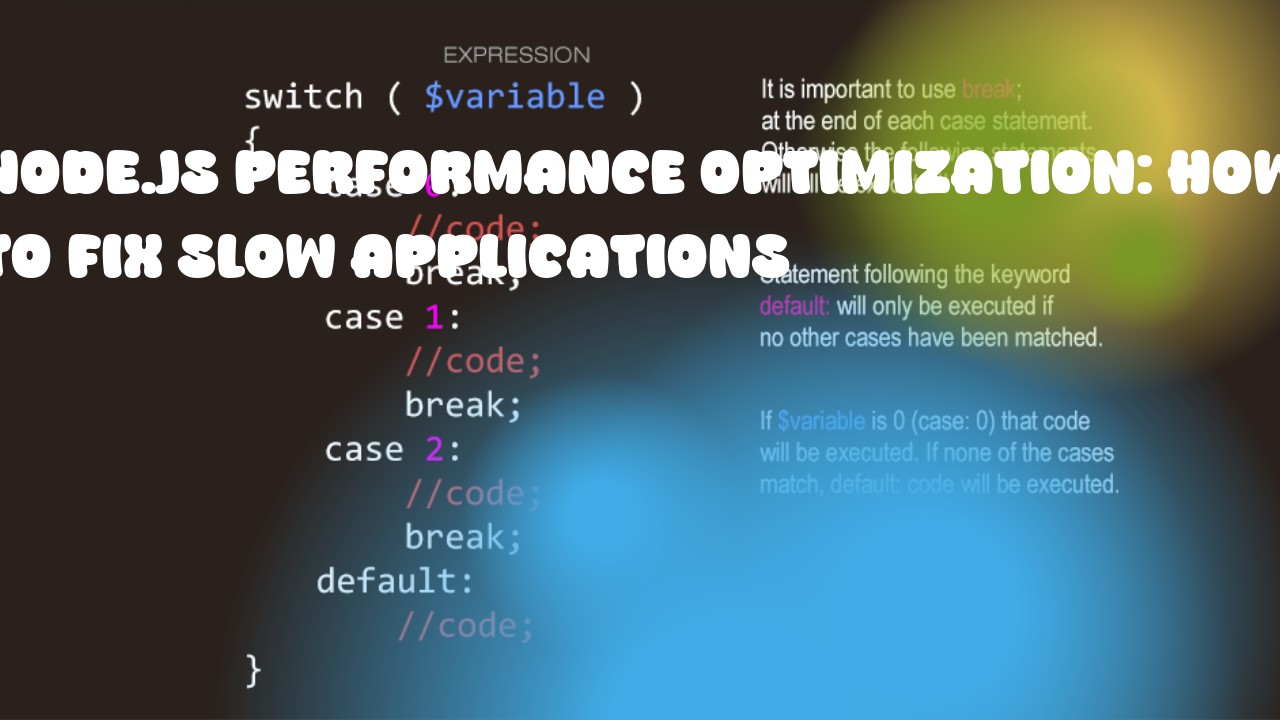As an AI language model, I can provide some common strategies for optimizing Node.js applications that may be slow or inefficient. Here are a few tips:
-
Use Efficient Data Structures and Algorithms: Choose data structures and algorithms that best suit your application's needs. Avoid using suboptimal data structures like arrays or objects when they can be replaced with more efficient alternatives. For example, use Sets for unique values and Maps for key-value pairs.
-
Minimize I/o Operations: Node.js is based on event-driven architecture where i/o operations are handled asynchronously. If your application has a lot of disk i/o or network i/o, it can cause performance issues. To optimize i/o operations, use non-blocking i/o techniques such as async/await, Promises, and streaming.
-
Optimize Database Queries: If your application uses a database, ensure that you are using the most efficient queries possible. Avoid using suboptimal or inefficient queries like SELECT *, JOINs, and subqueries. Use indexes to speed up query execution.
-
Minimize Memory Usage: Node.js applications consume a lot of memory due to its single-threaded architecture. To optimize memory usage, use techniques such as garbage collection, memory profiling, and managing memory leaks.
-
Cache Data: If your application frequently accesses the same data, consider caching it in memory or on disk to reduce i/o operations. You can also use caching libraries like Redis or Memcached.
-
Use Node.js Profiling Tools: Use tools such as V8 Profiler and Chrome DevTools for profiling your Node.js applications and identifying performance bottlenecks. This will help you identify areas where you can optimize your code to improve its performance.
-
Optimize Routing and Middleware: Ensure that your routing and middleware are optimized to handle incoming requests efficiently. Use techniques such as path-matching, caching, and rate limiting to minimize the overhead of request handling.
-
Utilize Node.js Event Loop: Understand the event loop in Node.js and optimize it by using non-blocking i/o operations and minimizing blocking operations such as synchronous file operations.
Remember that performance optimization is an iterative process. Start with simple optimizations and gradually increase the complexity of your applications to achieve optimal performance.

